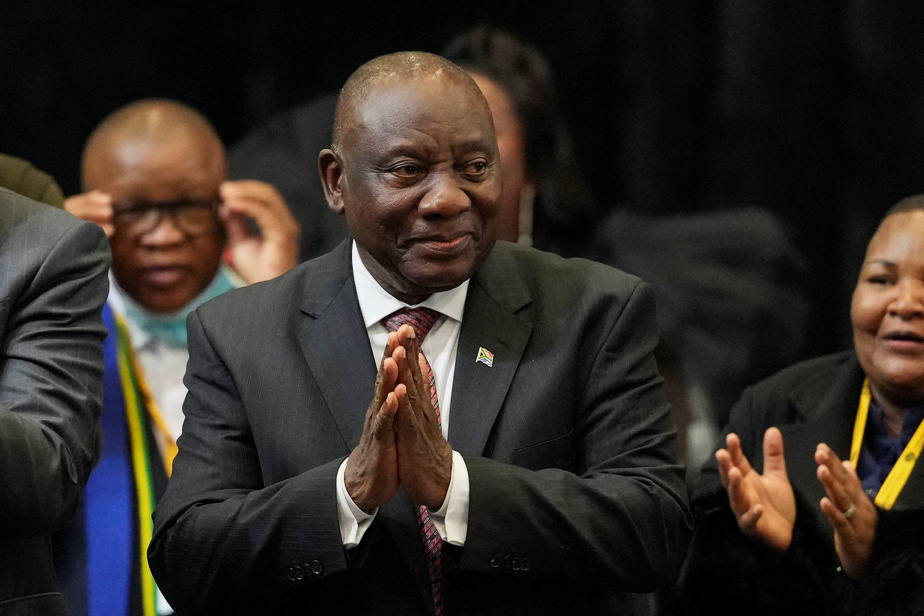(Cape Town) Cyril Ramaphosa was re-elected president of South Africa on Friday by the new Parliament, while his party the ANC reached an unprecedented government agreement with the main opposition party, the liberal DA.
Mr. Ramaphosa, 71, obtained 283 votes, far ahead of other candidate Julius Malema of the radical left party EFF who obtained 44 votes.
“I declare the Honorable Cyril Ramaphosa duly elected President,” announced Justice Raypmond Zondo who presided over the session.
“It’s a historic day” and “the start of a new chapter of construction, of cooperation,” responded DA leader John Steenhuisen, saying he was “looking forward to working” with Mr. Ramaphosa and his teams.
The legislative elections at the end of May marked a historic turning point for South Africa, putting an end to thirty years of hegemony by Nelson Mandela’s African National Congress (ANC). The party which defeated the hated apartheid regime thus lost its absolute majority in Parliament for the first time.
The DA announced in the morning that it had reached a government agreement with the ANC, positioned “around the rational center” of the political landscape.
John Steenhuisen estimated that this multi-party government is “the best opportunity” for the country “to obtain stability and good clean governance”, far from the corruption which has tainted the ANC in recent years.
He clarified that the allocation of ministerial positions had not yet been decided. “We talk about values and principles first, then positions,” he added.
Mr. Ramaphosa, a former trade unionist who made his fortune in business before returning to politics, displayed a frank relaxation all week, while he conducted tight negotiations behind the scenes.
He joked to the press, gathered before a crucial meeting of the ANC executive: “But what are you doing here, you are so worried? »
The inauguration of the head of state should take place on Wednesday in Pretoria, according to a government source.
For several days, an ANC-DA-IFP troika had taken shape, despite tensions on the left of the ANC, which took a dim view of an alliance with the DA, appreciated by the business world, but which remains widely perceived as the party of Whites and opposed to the weight of social assistance on the budget in particular.
On Wednesday, the leader of Inkhata confirmed the rumor, justifying his participation in the future government by the need for “stability” to respond to the difficulties of South Africans, weighed down by endemic unemployment, high inequalities and recurring power cuts .
Thursday evening, the secretary general of the ANC, Fikile Mbalula, announced “a breakthrough” with a view to a common agreement, confirming that the coalition would gravitate “around the center”, after a rejection of any agreement by the opposition of LEFT.
Last week, President Ramaphosa called on all parties to “work together” to form a “government of national unity”, a reference to the formula found at the end of apartheid uniting the first black president Nelson Mandela with the last president white, Frederik de Klerk.
The MK, the new party of former president accused of corruption Jacob Zuma, which has become the third political force with 58 seats, has refused any discussion with the ANC.
His party continues to contest the results of the legislative elections and its deputies were largely absent on Friday during this first parliamentary session.
The Economic Freedom Fighters (EFF, 39 seats), which advocates confiscating land from whites or privatizing mines, refused to join the coalition government.
Their leader Julius Malema denounced a “marriage of convenience” between ANC and DA, which in his eyes represents “white monopoly capital”, and promised to constitute “an effective opposition” to them.




